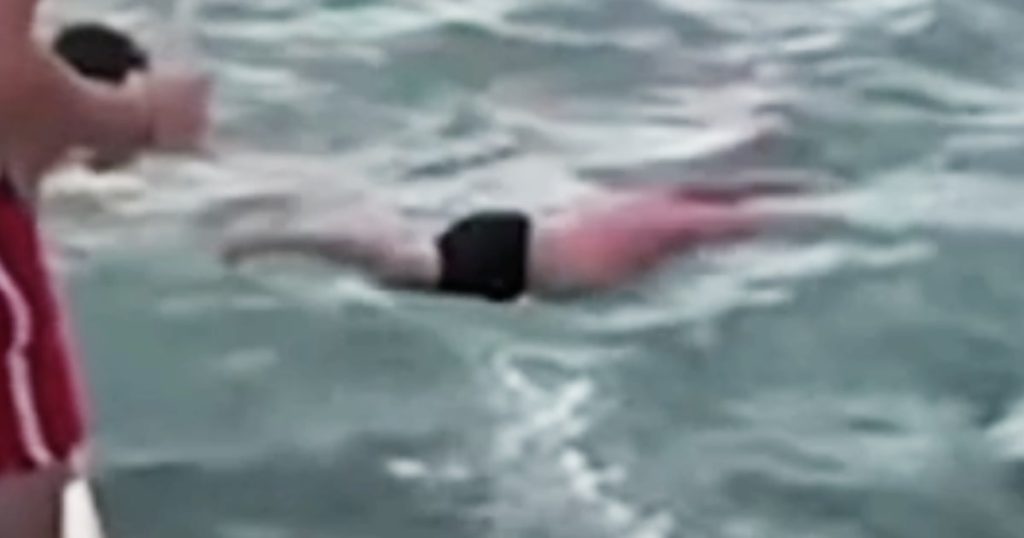A New Zealand man has been fined for trying to “body slam” an orca in a social media video that was shared on Instagram in February. The 50-year-old man, whose name was not disclosed, jumped off his boat into waters off the coast of Auckland in an attempt to touch the orca that was swimming nearby with its calf. In the video, the man can be heard bragging about “touching” the animal and asking if it was captured on film. Other people on the boat can be heard laughing and cheering in the background.
The Department of Conservation was alerted to the video by a concerned citizen and condemned the man’s behavior as “stupid” and “extremely irresponsible.” Principal investigation officer Hayden Loper expressed shock at the video and emphasized the potential harm to both the orca and the man involved. He reminded the public that orcas are protected in New Zealand, and it is illegal to swim with them. Loper warned of the danger posed by these powerful animals and highlighted the risks of causing harm to the whale or being injured by it.
The man was fined $600 New Zealand dollars for his actions, which the Department of Conservation deemed as a serious violation of wildlife protection laws. Orca, also known as killer whales, are apex predators that can weigh over 12,000 pounds and are the largest members of the dolphin family. Despite their intimidating size, experts believe that recent boat-ramming incidents off the Iberian Peninsula involving orcas were likely due to curiosity and playfulness rather than aggressive behavior.
Orca populations in New Zealand are estimated to be between 150 and 200 individuals, making them a relatively small but vulnerable group. Authorities and wildlife experts urge the public to respect these majestic creatures and observe them from a safe distance to avoid potentially dangerous encounters. While interactions with orcas can be fascinating and awe-inspiring, it is essential to prioritize the animals’ well-being and safety by following regulations and guidelines established for their protection.
The incident involving the man attempting to touch the orca underscores the need for greater awareness and education about wildlife conservation and responsible behavior around marine mammals. By raising public awareness about the importance of respecting these animals’ natural habitat and behaviors, authorities aim to prevent future incidents of reckless behavior that could harm both humans and wildlife. The fine imposed on the man serves as a reminder of the legal consequences of disregarding wildlife protection laws and the ethical considerations that should guide interactions with wild animals.
In conclusion, the video of the man attempting to interact with the orca highlights the need for increased vigilance and enforcement of regulations to safeguard marine wildlife populations. By holding individuals accountable for their actions and imposing fines for illegal behavior, authorities aim to discourage reckless conduct and promote a culture of respect for animals in their natural environment. Through education and awareness campaigns, the public can gain a deeper appreciation for the beauty and importance of marine species like orcas while committing to responsible and ethical behavior when encountering them in the wild.


